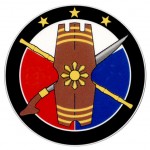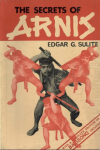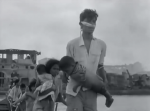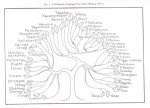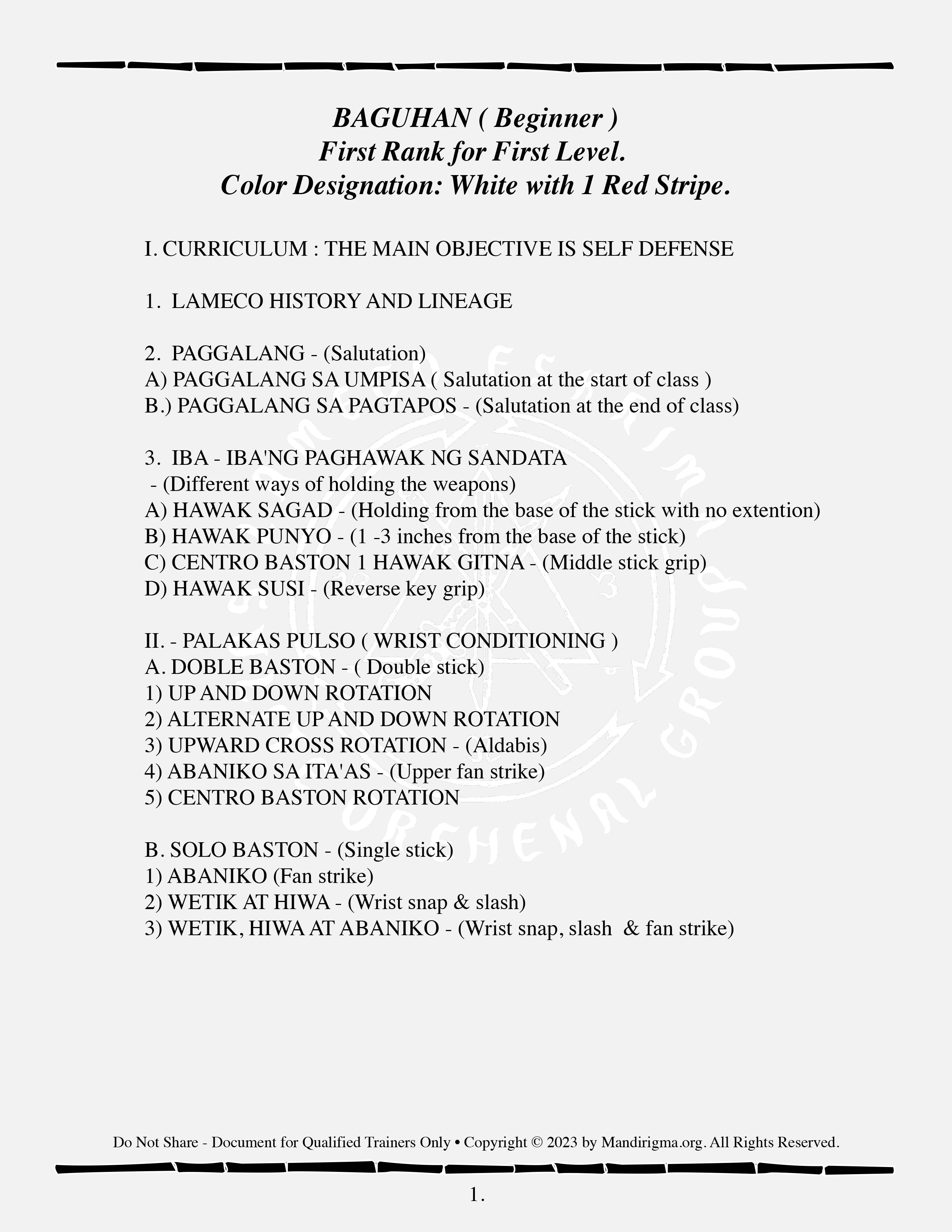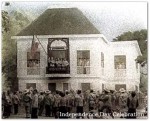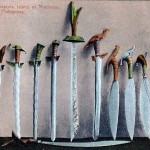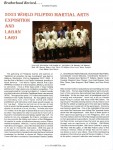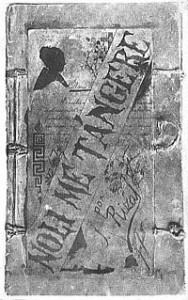
Noli Me Tangere is a novel by Filipino polymath José Rizal and first published in 1887 in Berlin, Germany. Early English translations used titles like An Eagle Flight and The Social Cancer, but more recent translations have been published using the original Latin title. Though originally written in Spanish, it is more commonly published and read in the Philippines in either English or Filipino. Together with its sequel (El Filibusterismo), the reading of Noli is obligatory for high school students all throughout the archipelago. References for the novel Jose Rizal, a Filipino nationalist and medical doctor, conceived the idea of writing a novel that would expose the ills of Philippine society after reading Harriet Beecher Stowe's Uncle Tom's Cabin. He preferred that the prospective novel express the way Filipino culture was backward, anti-progress, anti-intellectual, and not conducive to the ideas of the Age of Enlightenment. He was then a student of medicine in the Universidad Central de Madrid. In a reunion of Filipinos at the house of his friend Pedro A. Paterno in Madrid on 2 January 1884, Rizal proposed the writing of a novel about the Philippines written by a group of Filipinos. His proposal was unanimously approved by the Filipinos present at the party, among whom were Pedro, Maximino and Antonio Paterno, Graciano López Jaena, Evaristo Aguirre, Eduardo de Lete, Julio Llorente and Valentin Ventura. However, this project did not materialize. The people who agreed to help Rizal with the novel did not write anything. Initially, the novel was planned to cover and describe all phases of Filipino life, but almost everybody wanted to write about women. Rizal even saw his companions spend more time gambling and flirting with Spanish women. Because of this, he pulled out of the plan of co-writing with others and decided to draft the novel alone. Plot Having completed his studies in Europe, young Juan Crisóstomo Ibarra y Magsalin came back to the Philippines after a 7-year absence. In his honor, Don Santiago de los Santos, a family friend commonly known as Captain Tiago, threw a get-together party, which was attended by friars and other prominent figures. One of the guests, former San Diego curate Fray Dámaso Vardolagas belittled and slandered Ibarra. Ibarra brushed off the insults and took no offense; he instead politely excused himself and left the party because of an allegedly important task. The next day, Ibarra visits María Clara, his betrothed, the beautiful daughter of Captain Tiago and affluent resident of Binondo. Their long-standing love was clearly manifested in this meeting, and María Clara cannot help but reread the letters her sweetheart had written her before he went to Europe. Before Ibarra left for San Diego, Lieutenant Guevara, a Civil Guard, reveals to him the incidents preceding the death of his father, Don Rafael Ibarra, a rich hacendero of the town. According to Guevara, Don Rafael was unjustly accused of being a heretic, in addition to being a subservient — an allegation brought forth by Dámaso because of Don Rafael's non-participation in the Sacraments, such as Confession and Mass. Dámaso's animosity against Ibarra's father is aggravated by another incident when Don Rafael helped out on a fight between a tax collector and a child fighting, and the former's death was blamed on him, although it was not deliberate. Suddenly, all of those who thought ill of him surfaced with additional complaints. He was imprisoned, and just when the matter was almost settled, he died of sickness in jail. Still not content with what he had done, Dámaso arranged for Don Rafael's corpse to be dug up from the Catholic church and brought to a Chinese cemetery, because he thought it inappropriate to allow a heretic a Catholic burial ground. Unfortunately, it was raining and because of the bothersome weight of the body, the undertakers decide to throw the corpse into a nearby lake. Revenge was not in Ibarra's plans, instead he carried through his father's plan of putting up a school, since he believed that education would pave the way to his country's progress (all over the novel the author refers to both Spain and the Philippines as two different countries, which form part of a same nation or family, being Spain the mother and the Philippines the daughter). During the inauguration of the school, Ibarra would have been killed in a sabotage had Elías — a mysterious man who had warned Ibarra earlier of a plot to assassinate him — not saved him. Instead the hired killer met an unfortunate incident and died. The sequence of events proved to be too traumatic for María Clara who got seriously ill but was luckily cured by the medicine Ibarra sent. After the inauguration, Ibarra hosted a luncheon during which Dámaso, gate-crashing the luncheon, again insulted him. Ibarra ignored the priest's insolence, but when the latter slandered the memory of his dead father, he was no longer … [Read more...]

